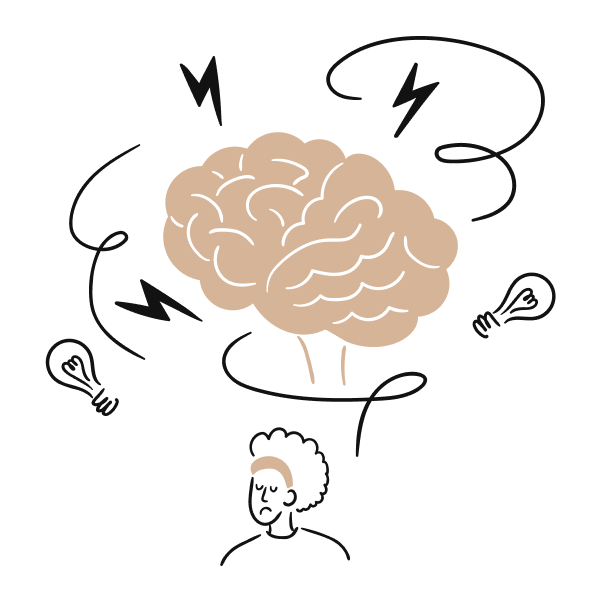There are various different types of anxiety therapy. In many cases, you’ll be able to overcome your anxiety disorder without medication. That means you’ll be able to completely eliminate it without becoming dependent on any specific pharmaceuticals.
How Can You Treat Anxiety Disorder ?
Of all the different treatment methods available, the most commonly used is cognitive behavioral therapy (CBT).
This therapy is centered around your thoughts related to particular events and situations, because these play a major role in how you behave and feel. For example, have you always been afraid of fainting in a crowded subway car? Since the subway makes you feel anxious, you may end up trying to avoid it.
CBT can help you change the way you think about that. Maybe there’s another way to interpret what you’re thinking and feeling? You’ll learn to behave differently in the situations that are triggering your anxiety. This will teach you that you don’t have to avoid these situations, which in turn will make you feel less anxious. It’s a widely used way of treating anxiety disorders.
In addition to CBT, Acceptance and Commitment Therapy (ACT) is a commonly used treatment. This theory assumes that you will inevitably encounter obstacles in your life. The treatment offers you tools to better manage unpleasant thoughts, difficult emotions and uncomfortable sensations in your body.
Help for Anxiety Disorders
Do you have persistent anxiety symptoms? Then it might be a good idea to speak to your physician or a psychologist. A psychologist can help you to manage your anxiety disorder.
-
Do you have questions about treatments? Call us on +31207717996 and we will immediately give you personal advice and help creating a treatment plan.
-
At iPractice we use blended care. This is a combination of online and offline therapy. You’ll have face-to-face conversations with a consulting psychologist and you’ll also have access to an online psychologist in between. This means that you can ask questions and share your thoughts whenever you like.
-
Cognitive behavioral therapy (CBT) and Acceptance and Commitment Therapy (ACT) are common treatments for anxiety disorders.
-
The cost of treatment is reimbursed by most health insurance companies when there is a referral letter from the GP and when the GP can make an official diagnosis according to DSM-5 guidelines.


 Nederlands
Nederlands




